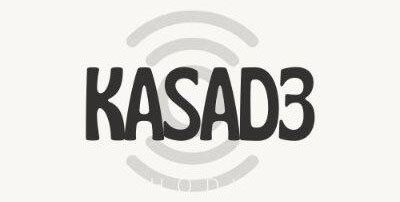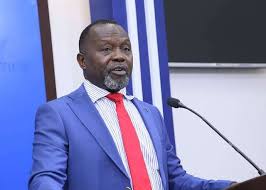A shocking corruption scandal has been uncovered at Ghana’s National Service Authority (NSA), with officials allegedly siphoning GH₵548 million of public funds through elaborate ghost worker schemes.
The Attorney General of Ghana revealed these findings during a press briefing on June 13, 2025, detailing how top NSA executives and private vendors colluded to defraud the state over six service years (2018-2024). The massive fraud was first exposed by investigative outlet The Fourth Estate and later became a key focus of President Mahama’s Operation Recover All Loot (ORAL) initiative. The 2022/2023 service year alone accounted for GH₵350 million in losses, representing one of Ghana’s largest public sector fraud cases in recent history.
Sophisticated Fraud Schemes Uncovered : Investigators uncovered multiple fraudulent tactics, including budget inflation, ghost worker payrolls, and money laundering through shell companies. NSA directors routinely submitted inflated personnel numbers to Parliament, then diverted excess funds to private accounts under the guise of “project execution.” The scheme involved creating 63,672 ghost names on payrolls, with payments funneled through the Ghana Interbank Payment System (GHIPSS) to E-Zwich cards controlled by suspects. Particularly egregious was the case of former deputy director Gifty Oware-Mensah, who allegedly secured a GH₵30.7 million bank loan using ghost names as collateral, then laundered the money through four different companies.
Key Players and Staggering Sums : The Attorney General named twelve NSA officials and eight vendors as principal suspects, including former Director-General Osei Assibey Antwi, who personally received GH₵8.2 million through an E-Zwich card found at his residence. Vendors like Marine Ventures (GH₵50.7 million) and Al-Fayda Ventures (GH₵21.3 million) received massive payments without evidence of services rendered. Investigators traced funds through a complex web of companies including AMAECOM, Scaffold, and Aristo Logistics, all linked to suspects. Shockingly, some vendors were paid for “supplying” goods to nonexistent service personnel, with payments totaling GH₵167.5 million to one savings and loan entity alone.
Legal Action and Asset Recovery : The Attorney General has filed multiple charges including stealing, money laundering, and willfully causing financial loss to the state. Twelve NSA officials and eight vendors face prosecution, while some cooperating vendors have been offered non-prosecution agreements in exchange for testimony. A comprehensive asset investigation is underway to recover stolen funds, with properties and bank accounts of suspects under scrutiny. The case highlights critical gaps in Ghana’s financial oversight systems, particularly at the NSA where digital verification measures like the Metric App failed to prevent massive fraud despite claims of saving GH₵112 million.
Calls for Systemic Reforms : This scandal has ignited national outrage and renewed calls for stronger anti-corruption measures in Ghana’s public sector. Civil society groups are demanding swift justice and institutional reforms to prevent future abuses, while the government promises transparency in court proceedings.
As Ghana grapples with economic challenges, the NSA case represents both a test of the justice system’s resolve and an opportunity to implement meaningful safeguards for public funds. The outcome will significantly impact public trust in government institutions and set precedents for handling high-profile corruption cases in the future.



